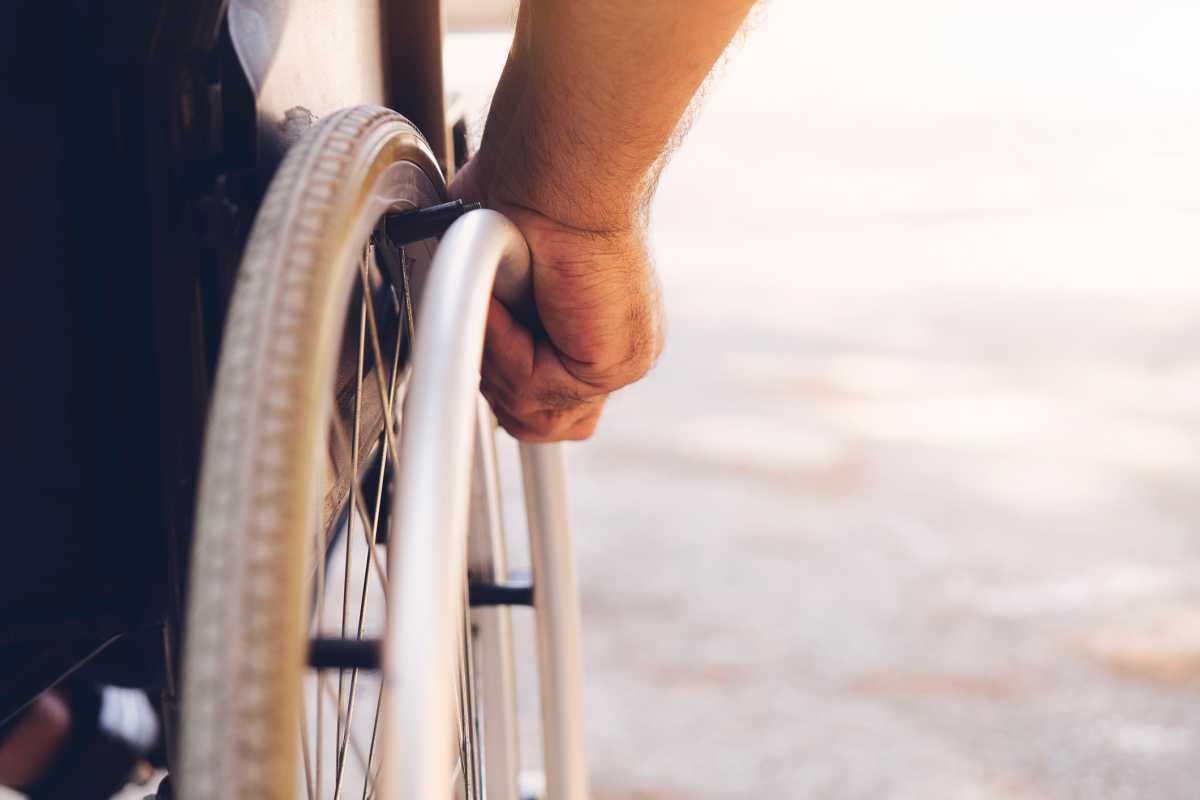BY MICHELE KAPLAN
I don’t know a single person who would say that the COVID-19 pandemic has been easy to get through, but as a disabled New Yorker, it came with extra challenges and stressors. Politicians talked about the importance of protecting the elderly but failed to mention disabled people as if we didn’t exist. Do you know what it’s like to be erased during a pandemic?
As a person with dietary limitations, I struggled to get enough food & supplies, as every able-bodied person began using the grocery delivery services I rely on. The powers that be foolishly advised people to stockpile supplies, as if we all have the money to be able to do so. Hospitals valued able-bodied lives over disabled ones, nursing homes became death traps for both their workers and their disabled and elderly residents, and Governor Cuomo knowingly sent COVID patients to places where social distancing was impossible.
A third of all COVID deaths in the U.S. happened in these nursing homes. Where is the outrage?
Meanwhile, hashtags like #Cuomosexual and #CuomoForPresident were trending. While it’s understandable that the Governor’s daily press briefings were a source of comfort for some, as a disabled person, it was hard to watch my community continue to be invisible as the pandemic grew.
Before and during the pandemic, Governor Cuomo continues to be hell-bent on forcing disabled people into nursing homes, with his massive cuts to Medicaid, including funding for hospitals and cuts to home healthcare programs like Consumer Directed Personal Assistance (CDPA) which gives me the freedom to live independently in my community.
In New York State, there are two kinds of home healthcare services: traditional services, where an agency sends you a homecare worker you do not know nor have vetted, and CDPA, which empowers disabled people to choose and hire a caregiver of their choice.
With CDPA, you have a say in who enters your home, who might be cooking your meals, helping you eat, get dressed, bathe, or go to the bathroom. Who wouldn’t want a say in who helps you with such personal things? CDPA has allowed me to hire people I already know and trust, and it’s created over 100,000 jobs in New York. During the pandemic, CDPA has kept the disabled safe in their own homes where it’s possible to self-isolate.
My pre-pandemic personal assistants, what homecare workers in CDPA are titled, were fellow artists and helped me with creative cognitive exercises, which is important as my brain is prone to cognitive decline. They were from the disability community, which meant knowing that I wouldn’t have to deal with ableism in my home. Lastly, they were queer, which meant I had people in my home who believed in inclusivity. It is not safe nor fun to have to rely on ignorant people for help, let alone have them in your apartment.
But once the pandemic hit, my weekday personal assistant, who is immunocompromised, couldn’t continue to work for me. The state failed to provide these healthcare workers – heroes as they were called – with any kind of PPE. My weekend personal assistant, who initially took on extra shifts, eventually became ill and I was left on my own.
I fought transitioning to traditional services, but the 14 days in total I spent alone devastated my health. I resisted because it meant having total strangers in my home – during a pandemic no less. I’ve used traditional services before, being sent assistants from an agency who fell asleep on the job, didn’t speak the same language, and one who was so rough with me in the shower that I cried. As stressful as it was, I had no choice but to go back.
An assistant was sent to me who worked nights in a hospital, functioning on four hours sleep. The agency supplied care plans but those were useless when not translated into the assistant’s first language. The physical toll of having to train yet another new worker – I’ve had 6 so far – left my body desperately needing to recover. I pushed my body to get out of bed and demonstrate what was needed, because not doing so would mean not eating.
It’s terrifying to think that if the agency feels that they can not meet the needs of your case, they have the legal option to force you into a nursing home. Meanwhile, I spoke with my assigned assistant about COVID, and she told me the agency has never tested any of the employees. As a result, a number of people in the office and field had died! I was stunned.
Why does the safety of the disability community continue to be an afterthought?
It is obvious that despite the agency’s efforts, traditional homecare is an overwhelmed system that cannot safely meet the demand of disabled New Yorkers. Yet I watched Governor Cuomo continue to attack Medicaid, the CDPA program, and my freedom throughout the pandemic. There was not enough funding in the 2019 budget to sustain CDPA, and yet he found $49 million for vanity license plates. There is not enough funding in the 2020 budget now either, but there would be if billionaires paid their fair share of taxes. There is a perception that disability is tragic, but in my opinion, the only tragedy is the oppression that we face.
Michele Kaplan is a disability advocate in New York City.


































